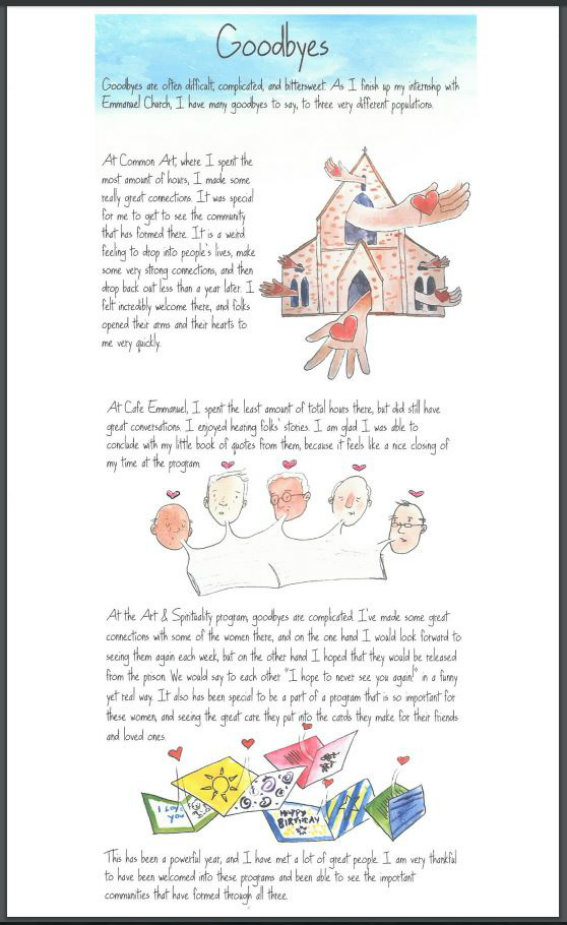Third Sunday after Pentecost, Proper 7A, June 25, 2017; The Rev. Pamela L. Werntz
Romans 6:1b-11 Should we continue in sin in order that grace may abound?
Matthew 10:24-39 I have not come to bring peace but a sword.
O God of love, may we have the wisdom, the strength, and the courage to seek always and everywhere after truth – come when it may and cost what it will.
Our lectionary has dished up some hard readings for us today. Sometimes when I am feasting on the Word of God, I wish it were a little easier to chew and that it tasted better. The trouble starts with the story of the exile of Hagar and Ishmael, when baby Isaac had grown into a boy. Father Abraham is a biblical character that I have a hard time revering; he is so frequently willing (or feeling called by God) to sacrifice or dispose of his wives and his sons. It seems to me that to focus only on the tortured relationship between Sarah and Hagar is to ignore the oppressive patriarchy that is at work in both of their lives. Zimbabwean theologian, Dora Mbuwayesango points out that both Sarah and Hagar are caught in a “patriarchal web that is not easy to untangle,” [1] and I think that applies just as much to 21st century listeners.
Continue reading


